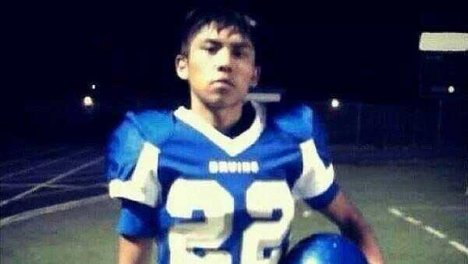
Sports Related Traumatic Brain Injury Continues
 Well into the fourth quarter senior wide receiver Charles Youvella of Hopi High School in Flagstaff, Arizona fell hard on his head and collapsed a couple of plays later; he died Monday of traumatic brain injury. Thursday, Missouri high school football player Chad Stover also died; he was hospitalized with a brain injury since October. These deaths come at a time where head injuries in football are attracting attention at all levels of the sport.
Well into the fourth quarter senior wide receiver Charles Youvella of Hopi High School in Flagstaff, Arizona fell hard on his head and collapsed a couple of plays later; he died Monday of traumatic brain injury. Thursday, Missouri high school football player Chad Stover also died; he was hospitalized with a brain injury since October. These deaths come at a time where head injuries in football are attracting attention at all levels of the sport.
The Institute of Medicine and National Research Council called for a national system to track sports related concussions and answer questions about youth concussion. The report said 250,000 people age 19 and younger were treated in emergency rooms for concussions and other sport or recreation related brain injured in the country in 2009. That was an increase from 150,000 in 2001.
Studies have shown that concussions are often not taken seriously and school-age athletes are encouraged and allowed to return to play before full recovery. This leaves them susceptible to more significant injury including traumatic brain injury (TBI). According to Barry P. Boden, MD, from the Orthopedic Center in Rockville, Md., and adjunct associate professor at the Uniform Services University of the Health Science in Bethesda, Md., high school football players have more than three times the risk of a catastrophic traumatic brain injury than their college peers.
A traumatic brain injury occurs when an external force traumatically injures the brain. The force can compress or damage delicate brain tissue depending on what type of brain injury results. In addition to sports, causes can include falls, vehicle accidents and violence. Disabilities resulting from a TBI depend upon the severity of the injury, the location of the injury, and the age and general health of the individual. Some common disabilities include problems with cognition, sensory processing (sight, hearing, touch, taste, and smell), communication, and behavior or mental health (depression, anxiety, personality changes, aggression, acting out, and social inappropriateness).
A person with a mild TBI may remain conscious or may experience a loss of consciousness for a few seconds or minutes. Other symptoms of mild TBI include:
- Headache
- Confusion
- Lightheadedness
- Dizziness
- Blurred vision or tired eyes
- Ringing in the ears
- Bad taste in the mouth
- Fatigue or lethargy
- A change in sleep patterns
- Behavioral or mood changes
- Trouble with memory, concentration, attention, or thinking.
A person with a moderate or severe TBI may show these same symptoms, but may also have a headache that gets worse or does not go away, repeated vomiting or nausea, convulsions or seizures, an inability to awaken from sleep, dilation of one or both pupils of the eyes, slurred speech, weakness or numbness in the extremities, loss of coordination, and increased confusion, restlessness, or agitation.
Anyone with signs of moderate or severe TBI should receive medical attention as soon as possible. Because little can be done to reverse the initial brain damage caused by trauma, medical personnel try to stabilize an individual with TBI and focus on preventing further injury. Primary concerns include insuring proper oxygen supply to the brain and the rest of the body, maintaining adequate blood flow, and controlling blood pressure.
If you or a loved one has sustained a blow to the head or a whiplash injury as a result of the negligence exhibited by an individual or corporation, it is important to be treated by a physician familiar with traumatic brain injury to determine whether an injury to the brain has actually occurred. A traumatic brain injury can have a pronounced effect on your quality of life including the ability to interact with loved ones and friends as well as the ability to work.
Personal Injury attorneys at Dolman Law Group are experienced and aggressive Florida traumatic brain injury attorneys who are often called upon by their colleagues to co-counsel head injury cases throughout the State of Florida. If our injury law attorneys can be of any further assistance, do not hesitate to call us immediately for a free case evaluation and consultation. 727-451-6900. Please visit our website to learn more about Traumatic Brain Injury http://www.dolmanlaw.com/practice-area/brain-injury/
Google+




